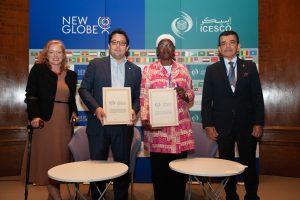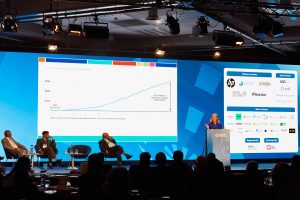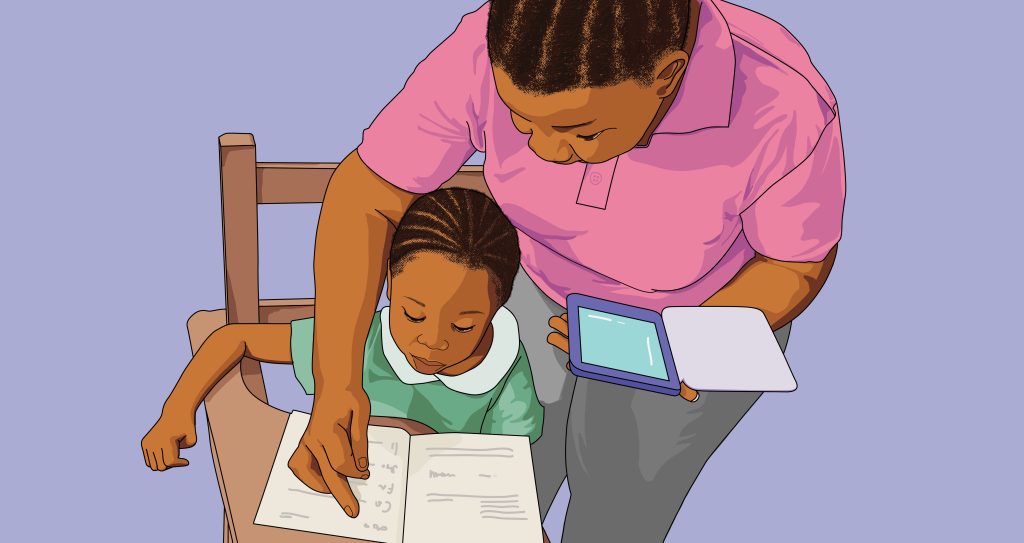UNGA76 reveals Global Education Data Gap
UNGA76 reveals Global Education Data Gap
The world’s leaders have all spoken and the 76th Session of the United Nations General Assembly has ended. This year’s UNGA was a hybrid — part live event, part virtual — due to the continuing impact of the COVID pandemic.
Some African leaders, such as President Buhari of Nigeria, chose to travel to New York to deliver their Head of State address in person. Others, including Presidents Kenyatta of Kenya and Weah of Liberia did so by video message.
All joined in addressing the main theme of this year’s Assembly, building resilience through hope to recover from COVID-19. Greater and faster rollout of vaccines, support for economic recovery and the urgent need to address the climate crisis were all mentioned extensively.
But the UN’s Sustainable Development Goals have far wider ambitions. SDG4 specifically deals with the ambition to deliver quality education to everyone by 2030. UN Resolution 74/223, reaffirmed at this year’s UNGA, made clear the scale of the challenge.
“More than half of children and adolescents are not meeting minimum proficiency standards in reading and mathematics.”
In the side events, panels and symposiums which are always pitched around UNGA more light was shone on why this enormous gap in global learning is so challenging to close.
The World Bank Director of Education, Jaime Saavedra, explained it very clearly in a joint session with UNESCO and UNICEF, the UN’s education and children’s organisations.
“If we don’t have data we are really flying blind. If we don’t have data it’s impossible to know where systems are and it’s impossible to know if the policies that we are implementing are working or not. So we need to focus on the outcome and make sure that kids are in school that they are learning.”
That vital data on education is missing. It is not gathered or reported in many low and middle income countries; often precisely the countries where the need to improve learning is most urgent.
The Gates Foundation Goalkeepers Report 2021, released as UNGA began, was stark:
“Measures of learning proficiency remain scarce, particularly in low- and middle-income countries, and their reliability is often questionable.”
The Goalkeepers were echoing the Global Partnership for Education Results Report for 2021, released just before UNGA. It acknowledged — on page 58 of its findings — that just 20 out of 61 GPE partner countries — lower income countries it supports in order to improve learning outcomes — report at least 10 of 12 key education-related outcomes.
At NewGlobe, learning is a science. We work in support of visionary governments determined to transform whole education systems and therefore education outcomes for whole generations of their children. That can only be done through the gathering of data and its application to drive learning improvements.
One program NewGlobe supports is the EKOEXCEL basic education program in Nigeria’s Lagos State, which is transforming outcomes for children in more than 1,000 primary schools.
Lagos Education Board permanent member Adebayo Adefuje joined an mEducation Alliance panel for UNGA and explained how it has data at its heart.
“We monitor our schools in real time. This information is vital”
EKOEXCEL leaders are able to see whether a teacher is in school, whether they are teaching and completing the planned lesson, whether a child is in school and a range of other vital indicators — every day. Armed with such information they are able to intervene and support any school requiring attention. Adebayo Adefuje explained the results to the mEducation Alliance.
“We used the first 300 EKOEXCEL schools as a baseline and the results were staggering, even in the first eight weeks In terms of literacy, learning was three times faster and in numeracy two times faster than schools that were not in EKOEXCEL”
The state and national governments and community schools programs underpinned by real-time data gathering and supported by NewGlobe have demonstrated time and again that they are able to drive huge learning gains through evidence-based improvement.
But it is clear that in too many developing countries that is still not the case. The education data gap remains enormous.
As Professor Eric Hanushek, whose award of the prestigious Yidan Prize for education research was announced during UNGA puts it:
“Education has historically been a field where decisions have followed anecdotes, fads and political whims, but advances in high-quality research and evidence-based policy bodes well for future improvements.”
Professor Hanushek has decided to address the issue directly. His Yidan Prize will be used to support the creation of a fellowship program for developing countries, creating local networks of local people using data and evidence to identify and establish better education policies. He explained:
“The initial effort will be with African countries. Working with local think tanks, I hope to catalyze education improvements in places with the greatest needs.”
If more African Governments are able to arm themselves with vital, accurate education data, and use that data as the basis for evidence-based decision-making, the education data gap may finally begin to close. NewGlobe stands ready to assist them. That is the vital first step in the journey towards meeting the goals of SDG4, reaffirmed once again at this year’s UN General Assembly.



